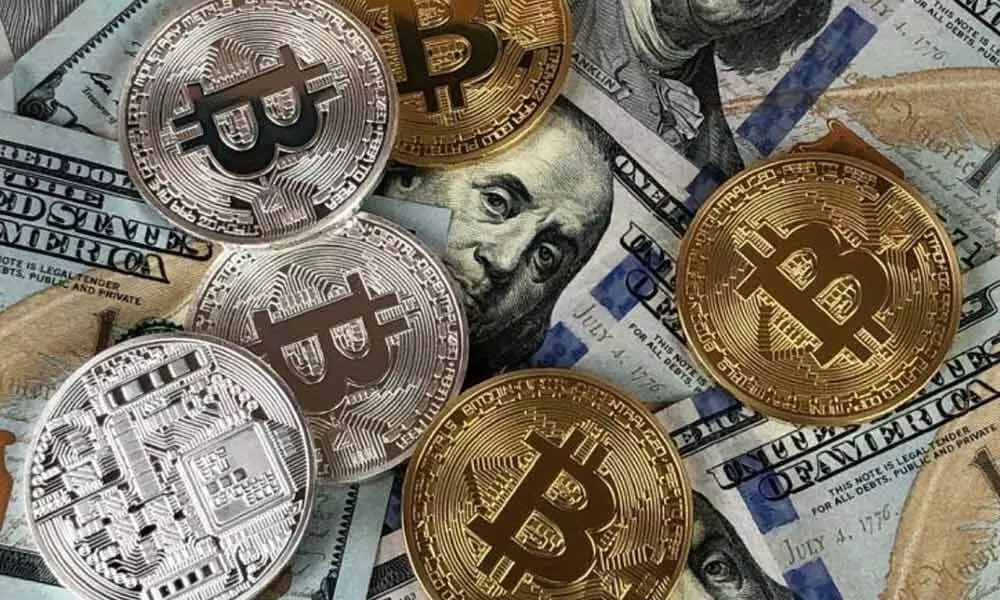Things to know before investing in cryptos

Things to know before investing in cryptos
Whenever we make any investments, we look at the underlying asset or rationale in each of those
Whenever we make anyinvestments, we look at the underlying asset or rationale in each of those. But, when discussing about crypto investing, most people are interested in their speculative side i.e., to make quick money with least understanding on how they operate. This article attempts a lowdown on the cryptos and how to approach investing in them. While trying to be concise, I'm not trivialising the complexity involved in these instruments.
Traditionally banking has evolved from visiting the bank for cash deposit/withdraw to use internet/mobile banking to do the same and at all these instances, we are using the bank's facilities (physical/virtual) to complete the transactions. Think of solution where people transact and securely too, without a bank or any centralised system. Crypto is the medium for this decentralisation and aptly called as Decentralised Finance (DeFi).
Cryptocurrency takes the form of tokens or coins and exists on a distributed (decentralised) ledger. In a traditional setup, when a transaction happens between the parties, the bank ratifies the identity, the type, the quantum of the transaction, etc. also finally settle, reconciles and records the transaction. In the new tech, each of these transactions are bunched together to call as blocks, represented by hash (#), a unique identification of the data which is a series of alphanumeric garble or code. This also contains the data of previous block and thus a series of blocks put together into a blockchain, excepting in a genesis block which is the first block in the chain.
Thus, whenever a change is done in the block, it has to be ratified by the other blocks in the entire chain contrary to a centralised system to complete the transaction. This would be done by various 'nodes' - the live computers, through the algorithms employed by the platform. When someone tries to alter the block unauthorizedly, the next block invalidates and so it becomes difficult to tamper or hack. Though by engaging higher computing power (a rare feat) could be achieved, however it is being patched (corrected) with newer updates.
Every blockchain attempts to solve a problem and have a difficulty target, a hexadecimal value which could be converted into human understandable value, adjusted every 2016th block. Miners (programmers) use their computational power to unearth the collective hash value less than this difficulty target value. To ensure security in the blockchain, everyone in the block has a copy of the single main ledger and so any change should be ratified by all the nodes in the chain. With each new block arrival, everyone is intimated and validated while whoever does first get incentivised through a token, in other words, a currency.
The entire blockchain is based on a trilemma of Security, Scalability and Decentralisation. It's a trilemma, though not a law stating all the three aspects can't be achieved. But till date, no solution achieved maximising all three aspects resulting in Bitcoin (BTC), the first and most popular currency lacks scalability i.e., it has limited number issued while that of the next cousin, the Etherium (ETH) has compromised security over scalability. Here, security doesn't mean the safety of the blockchain or their derivates but the code or algorithm is open-sourced. BTC is closed source while ETH allows its code to be accessible so that multiple offerings could be built (scalable) using its platform. Efforts are being done to get all attributes to be included and thus multiple evolutions (solutions) are being created.
The idea is to ensure decentralisation of the various functions that could run without any downtime, fraud, control or interference from a third party. This is achieved through 'smart contracts', the automated part of the settling, record keeping, etc. and Decentralised Applications (DApps). So, each attempting to find a solution or better the existing system (using ETH, etc.) launches a new variant and thus a new token or coin is issued. It's estimated that there are over 4,500 cryptocurrencies available currently. How to choose the right one among them?
Ideally, one could start with stable coins i.e., those coins which have lesser volatility, price stability and are backed by a reserve asset. They attempt to peg their market value to some external reference like a currency ($) or a commodity (like Gold, etc.). They achieve the price stability via collateralization (backed with) or through algorithmic mechanism of buying and selling the reference asset or its derivatives. Then there're options like Polkadot (DOT) which delivers interoperability between blockchains while Chainlink bridges gap between smart contracts and data outside of it.
For buying any of these, one needs a marketplace and crypto exchanges are the via media. Again, there are multiple exchanges and the choice of exchange depends on the anonymity or privacy of the user, safety, security and costs of using the platform. There's a trade-off at each of these parameters to arrive at the right one for any investor. While exchanges (like coinbase, etc.) offer the transaction facilities they again replicate a centralised system and so now we even have a decentralised exchange in Uniswap.
When investing in these alternatives, the most important consideration beyond the risk appetite should be about Liquidity, Taxation and Regulatory framework. With the price of BTC is over Rs 40 lakh, one could opt for fractional investing i.e., to invest a fraction of a coin (BTC was designed with foresight to be divided up to 10 decimal points due to its scarcity), but is at the discretion of the exchange. Taxation becomes a critical concern as very little clarity and consensus is achieved among the tax officials and experts alike. Moreover, the news of outright ban or restrictions in trade or transaction of these instruments leaves a shadow on the domestic investors. Also, using international exchanges could lead to FEMA irregularities leading to further trouble. An ideal allocation not exceeding 5 per cent across the stable and other coins (diversification) could provide for better risk adjusted returns.
(The author is a co-founder of "Wealocity", a wealth management firm and could be reached at [email protected])









